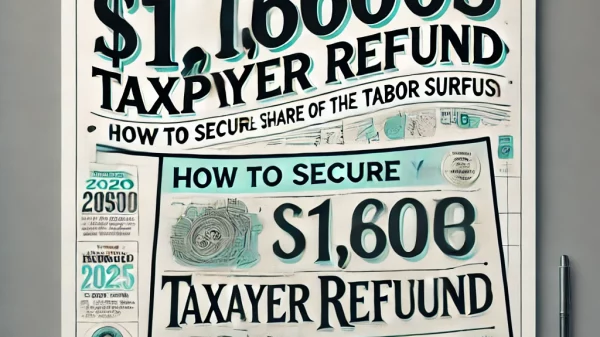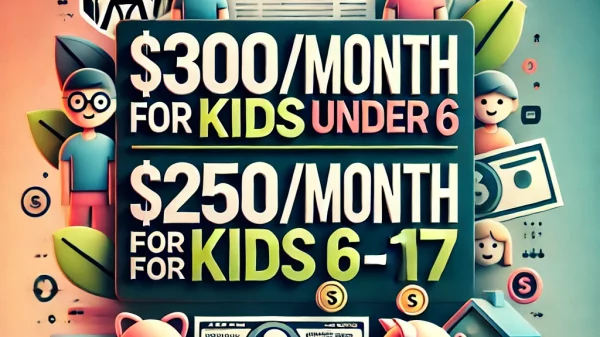January 2025 – Colorado taxpayers are set to receive significant financial relief this year as part of the Taxpayer’s Bill of Rights (TABOR) surplus refund. Here’s what you need to know about the program and how to claim your share of up to $1,600.
What is the TABOR Refund?
The Taxpayer’s Bill of Rights (TABOR) requires the state to refund surplus revenue collected beyond the state’s budgetary needs. For 2025, Colorado’s robust economy has generated a surplus, allowing for these substantial refunds to residents.
How Much Can You Get?
- Single Taxpayers: Eligible for refunds up to $800.
- Married Couples Filing Jointly: Can receive up to $1,600.
Refund amounts are tied to the state’s revenue surplus and individual filing status.
Who is Eligible?
To qualify for the TABOR refund, residents must:
- Have filed a 2024 Colorado state tax return.
- Be a full-year resident of Colorado in the 2024 tax year.
Refunds are distributed automatically based on filed tax returns, so no additional action is needed for eligible taxpayers.
When Will You Receive the Refund?
The Colorado Department of Revenue has announced that refunds will begin being issued in August 2025. Direct deposits will be prioritized, with paper checks sent to taxpayers who have not provided banking information.
Why This Matters
The TABOR refund provides critical financial relief to Coloradans amid rising costs of living and inflation. These refunds are designed to give back surplus tax dollars to those who contributed to the state’s economic success.
How to Ensure You Receive Your Refund
- File Your 2024 Taxes: Ensure you file your Colorado state tax return by the April 15, 2025 deadline.
- Update Your Information: Confirm that your mailing address and bank account details are accurate to avoid delays.
- Track Your Refund: Use the Colorado Department of Revenue’s online tools to monitor the status of your payment.
Potential Uses of Refunds
Taxpayers have highlighted various ways they plan to use their refunds, including:
- Covering housing or utility bills.
- Paying down debts.
- Investing in education or savings accounts.
Looking Ahead
While the TABOR refund is a significant benefit, it has also sparked debates about its long-term sustainability. Some policymakers advocate for adjustments to the system to allocate more surplus funds toward infrastructure and public services.












































